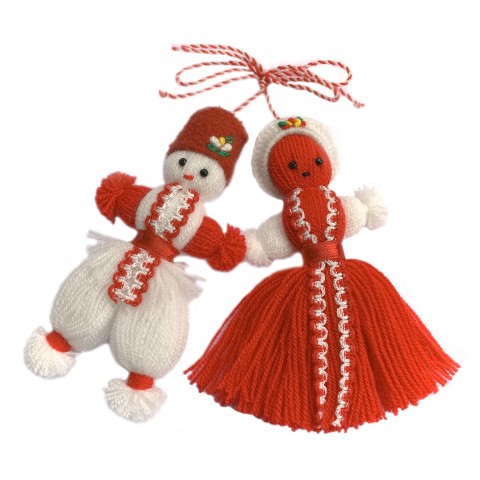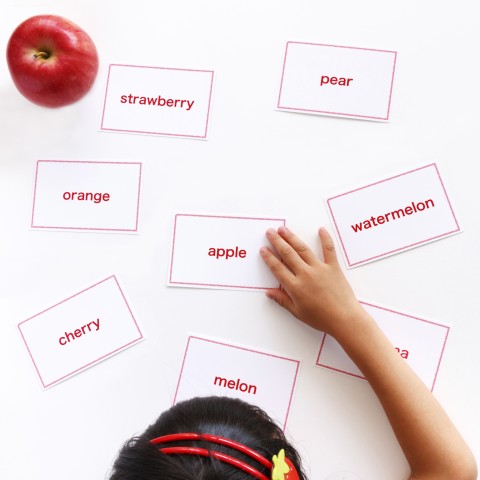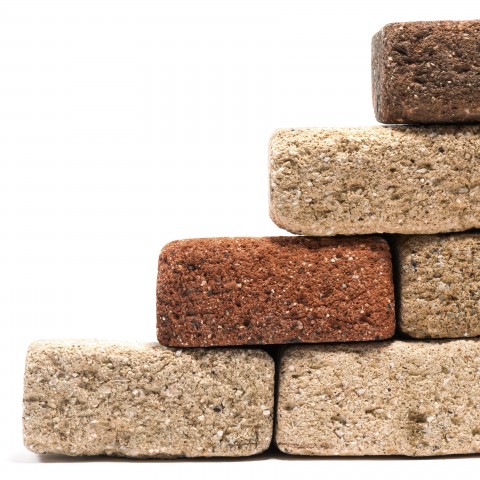
Learning a new language is like starting a new journey! It opens up hundreds of opportunities for you and acquaints you with different ways of thinking, unknown cultures, unique people, a rich history, and ways of life you may not be familiar with. By learning a country’s language, you also learn about that country’s cuisine, festivals, traditions, and customs. And considering the rich cultural heritage of Bulgaria, Bulgarian is one language you’ll love learning.
That said, how hard is it to learn Bulgarian?
If you start by learning the grammar—all those endless verb forms and conjugations, as well as the adjectives and their forms—there’s a good chance that you’ll soon become lost in the multiple rules and give up. This is not a good way to start, especially if you’re an absolute beginner.

As you can see, how difficult Bulgarian is for you depends on how you choose to learn. Yes, learning a new language can be a challenge, but anyone can do it! BulgarianPod101 is here not only to motivate you in your studies and to dispel all your doubts, but also to make the process of learning fun and pleasurable—just like each new journey should be.
So let’s take a look at what things might make the Bulgarian language hard to learn and how to overcome them. See for yourself that it is easy to learn Bulgarian with BulgarianPod101.
 Table of Contents
Table of Contents
- Is it Hard to Learn Bulgarian?
- What are the Hardest and Easiest Parts of Learning Bulgarian?
- I Want to Learn Bulgarian. Where Should I Start?
- Five Tips for New Bulgarian Learners
- Why Don’t You Start Learning Bulgarian Right Away? (4 Practical Exercises)
- Why is BulgarianPod101 Great for Learning Bulgarian?
1. Is it Hard to Learn Bulgarian?
The very first challenge that new Bulgarian-learners face is studying the Cyrillic alphabet. Yes, it’s completely different from the Latin alphabet, but fortunately, there’s an easy way to learn the Bulgarian alphabet. Let’s study it together!
How to Learn the Bulgarian Alphabet Easier
To make the learning process easier, let’s review the Bulgarian alphabet in chunks. We’ll start with the similarities that you can easily recognize between the two alphabet systems.
| Bulgarian Letters | English Letters |
| Аа | Аа |
| Бб | Bb |
| Дд | Dd |
| Ее | Ee |
| Зз | Zz (note that this Bulgarian letter looks like the cursive ‘Z’ in English) |
| Кк | Kk |
| Мм | Mm |
| Оо | Oo |
| Тт | Tt |
Isn’t it great that you already know nine Bulgarian letters? Let’s move on.
The next thing to remember is that:
- The Bulgarian В is not the English B
- The Bulgarian H is not the English H
- The Bulgarian P is not the English P
Here’s how to remember them:
| Bulgarian Вв | English Vv |
| Bulgarian Hн | English Nn |
| Bulgarian Pр | English Rr |
So far, we’ve covered twelve out of thirty Bulgarian letters. Not bad, right? Let’s move forward.
| Bulgarian Letters | English Letters |
| Гг | Gg |
| Пп | Pp |
| Фф | Ff |
| Лл | Ll |
| Уу | Uu (pronounced like “oo” in “tool”) |
| Хх | Hh |
| Ии (like opposite N) | Ii (pronounced like “i” in “igloo”) |
| Cc | Ss |
Twenty letters so far. Let’s practice their pronunciation! Try to read the following words, and then check their pronunciation in parentheses below! To get a headstart in your vocabulary learning, you can also make flashcards for these words.
- баба, каза, мама, коза, мотор, паун, доктор, ухо
(baba, kaza, mama, koza, motor, paun, doktor, ooho)
grandma, said, mom, goat, motor, peacock, doctor, ear
Excellent! Now, let’s study ten more Bulgarian letters.
Although English-speakers are not accustomed to these next letters (as most of them are pronounced as a combination of two or more sounds), we believe that you’ll get used to them with some practice. For example, you can study two letters a day (one in the morning and one in the evening) and have them memorized in just five days!
| Bulgarian Letters | English Letters |
| Жж | Pronounced like ZH or like S in “treasure” |
| Йй | Pronounced like Y in “yes” |
| Цц | Pronounced like TS in “fits” |
| Чч | Pronounced like CH in “church” |
| Шш | Pronounced like SH in “shoe” |
| Щщ | Pronounced like SHT in “shtick” |
| Ъъ | Pronounced like U in “turn” |
| ь | Soft sign |
| Юю | Pronounced like YU or U in “menu” |
| Яя (like a backwards R) | Pronounced like YA in “yacht” |
The easiest way to get used to these letters is through practical reading exercises. For example, try to read the following word:
- мартеница
(martenitsa)

You can read more about the Bulgarian мартеница, which will help you learn more about the traditions of this country.
Here are a few more words for practicing your Bulgarian reading skills:
- щастие, шал, човек, цвете, жаба
(shtastie, shal, chovek, tsvete, zhaba)
happiness, scarf, man, flower, frog
Don’t forget to make more flashcards! We’ll be practicing some of these words again in a later section of this article. Hopefully, this new approach to learning the Bulgarian alphabet will help you memorize it easier.
- ➢ BulgarianPod101 has prepared a detailed guide to the Bulgarian alphabet that can be downloaded here for free. We highly recommend it for beginners!
2. What are the Hardest and Easiest Parts of Learning Bulgarian?
Now that you’ve overcome the first difficulty, which is learning the Bulgarian alphabet, let’s take a look at what makes Bulgarian hard to learn (and which things make it pretty easy).
What is the Hardest Part of Learning Bulgarian?
One of the biggest difficulties for Bulgarian-learners is pronunciation, especially when Bulgarian textbooks make it seem even more complicated. But how difficult is it to learn Bulgarian pronunciation and phonetic changes, really? Well, once you have the alphabet down, the process really isn’t so difficult. These five tips will help you a lot!
Tip #1 – Imitate native Bulgarian-speakers!
The more you listen to how natives speak, the better. Doing so will allow you to get used to the proper pronunciation and the accents. Just like little children, we learn better by imitating others than by reading rules and instructions.
Tip #2 – Start reading short Bulgarian texts by repeating what you hear!
The best way to do this is by listening to a dialogue between native speakers and repeating what they say. Luckily, BulgarianPod101.com has tons of audio and video lessons featuring native speaker dialogues with transcripts. Perfect for practicing your reading, listening, and speaking skills at the same time!

Tip #3 – The more you practice, the better your pronunciation will get!
While you can’t expect to have perfect pronunciation after only a month of practice, practicing every day will significantly improve your pronunciation over time. This is because you’ll get used to the difficult words through exposure, and they won’t seem so hard anymore.
Tip #4 – Don’t be afraid to talk to others in Bulgarian!
This is the most important tip! Even if your pronunciation isn’t very good yet, try to speak daily with native Bulgarians. This will improve your pronunciation little by little.
Tip #5 – Learn the longer words in chunks!
The long words are hardest to pronounce. But if you divide them into syllables, the pronunciation will seem much easier. For example:
- Здравейте
(Zdraveyte)
“Hello” – for formal or plural form
Can be divided into:
Здрав – ей – те – and the accent falls on the second syllable
- Благодаря
(Blagodarya)
“Thank you!”
Can be divided into:
Благо – да – ря – and the accent falls on the last syllable
- ➢ On BulgarianPod101.com, you can find our Ultimate Bulgarian Pronunciation Guide, which will help you overcome the hardest part of learning Bulgarian.
Is it Hard to Learn Bulgarian Verbs?
The answer is yes, unless you know this trick to memorize them easier:
Divide the verbs into groups with common roots and different prefixes that change the meaning of each verb. Here’s an example of such a group:
| Bulgarian verb + pronunciation | English meaning |
| казвам (kazvam) | “I say” |
| приказвам (prikazvam) | “I speak” |
| разказвам (razkazvam) | “I narrate” |
| доказвам (dokazvam) | “I prove” |
| наказвам (nakazvam) | “I punish” |
| показвам (pokazvam) | “I show” |
| изказвам (izkazvam) | “I express” |
| наприказвам (naprikazvam) | “get my fill of talking” |
And here’s another example:
| Bulgarian verb + pronunciation | English meaning |
| пиша (pisha) | “I write” |
| впиша (vpisha) | “I еnter” (like entering a name on a list) |
| напиша (napisha) | “I write down” |
| допиша (dopisha) | “I finish writing” |
| запиша (zapisha) | “I note down” |
| надпиша (nadpisha) | “I inscribe” |
| изпиша (izpisha) | “I cover with writing” |
| подпиша (podpisha) | “I sign” |
| препиша (prepisha) | “I transcribe” |
| припиша (pripisha) | “I ascribe,” “I attribute” |
| отпиша (otpisha) | “I unsubscribe” |
You can make flashcards for these verb groups to memorize them easier.

- ➢ See BulgarianPod101’s list of the 50 Most Common Bulgarian Verbs and their pronunciation!
What is the Easiest Part of Learning Bulgarian?
It’s reasonable to start learning the easiest part of Bulgarian first: cognate words, or the ones that sound and look similar in English and Bulgarian. If you’ve learned the Bulgarian alphabet, you’ll see how easy it is to learn Bulgarian words that have a common origin with those in English.
Here are some examples of cognate words:
| Bulgarian word + pronunciation | English meaning |
| студент (student) | “student” |
| идeя (eedeya) | “idea” |
| банан (banan) | “banana” |
| клас (klas) | “class” |
| център (tsentar) | “center” |
| сестра́ (sestra) | “sister” |
| хумор (humor) | “humor” |
| проект (proyekt) | “project” |
| филм (film) | “film,” “movie” |
Again, we recommend that you make flashcards of these cognates. We’ll be going over them again in section five.
- ➢ Want to make even more flashcards? See our list of the 100 Core Bulgarian Words.
3. I Want to Learn Bulgarian. Where Should I Start?
We’ve already mentioned that the best starting point for learning Bulgarian is to memorize the alphabet, and then make flashcards of cognate words. Here, we’ll give you some simple tips that will motivate you and help you achieve your desired Bulgarian fluency!
Tip #1 – Make your own achievable schedule with pre-set goals.
Try to divide your learning into easy stages and set a specific period of time to study each new level. If you’re motivated enough to learn Bulgarian, you should set aside at least fifteen minutes a day to study. This is a good amount of time that will allow you to really learn something without interfering with your schedule. Regular learning is essential for your progress, so don’t be lazy by skipping a day or two!
Imagine your language learning as a wall that you have to build by adding bricks daily. Each day of study equals one more brick. But if you stop studying the language for a long period of time, it’s quite probable that some of your bricks will fall out and bring down the rest of the wall.

Tip #2 – Make your learning fun!
There are a few ways to achieve this. For example, you can make your own flashcards and play a game with them, watch intriguing TV series in Bulgarian, learn about dates in Bulgarian, listen to popular Bulgarian songs, and the list goes on.
If there’s a topic you’re interested in, you can start by learning related Bulgarian vocabulary, doing research, and studying materials from Bulgarian sources.
Tip #3 – Find a Bulgarian friend!
One of the best ways to practice Bulgarian is to speak with a real Bulgarian. Find a Bulgarian friend to help you improve your conversational skills and achieve fluency faster. By speaking with him or her, you’ll remove your language barrier faster and increase your confidence, which is a surefire way to success.
Tip #4 – Review what you have learned so far!
It’s essential to review new vocabulary at least once a week until you get used to it. Your brain needs time to build solid roads in the new language, so you have to go through these new words often until they go from being tiny paths to being wide highways.
Tip #5 – Don’t give up!
There will be moments when learning Bulgarian won’t be as easy and fun as you wish. You just need to overcome these challenges instead of giving up. Don’t be afraid of making mistakes, as mistakes will help you get better.
Here’s a motivational thought from Theodore Roosevelt: “Believe you can and you’re halfway there.” In Bulgarian, this is:
- Ако вярвате, че можете, вече сте изминали половината път.
(Ako vyarvate, che mozhete, veche ste izminali polovinata pat.)

4. Five Tips for New Bulgarian Learners
Want to learn Bulgarian easy and fast? BulgarianPod101 has some tips for new learners! Follow our advice, and you’ll learn to speak Bulgarian in no time.
Tip #1 – Do all five!
The five elements of language-learning are: watching, reading, listening, writing, and speaking. To improve your Bulgarian language skills, you need to advance in all of these elements. How can you do this?
- Watching: Watch Bulgarian TV shows, Bulgarian movies, or Bulgarian news channels on a daily basis.
- Reading: Read Bulgarian books in your favorite genre, articles, news, letters, etc.
- Listening: You can listen to Bulgarian radio or even popular Bulgarian songs.
- Writing: Write as many new words as possible, and try forming sentences with them.
- Speaking: Don’t be afraid of speaking Bulgarian with your Bulgarian friend, in the shop, or wherever you go.
Tip #2 – Repeat, repeat, repeat…
In order to get used to the language’s rhythm, listen to new phrases and sentences over and over again until you start to recognize and understand the meaning. Try to imitate the native speaker as closely as possible.
Tip #3 – Perfect your pronunciation!
You can achieve some great results by using a voice-recording tool. It will allow you to listen to your pronunciation and compare it to that of a native speaker. This way, you can more easily recognize the sounds that you pronounce differently and fix them.
Tip #4 – Take a dictionary wherever you go!
This is a great way to learn new words while waiting in line, drinking your coffee, or even while you’re out walking. This is a natural way to learn during your free time.
Tip #5 – Master recorded dialogues!
Whenever you listen to recorded dialogues by native speakers, pay extra attention. Study the lines, learn them by heart, and begin understanding how to reply to someone in everyday conversations.
Another great way to learn Bulgarian is by using a Bulgarian app.
5. Why Don’t You Start Learning Bulgarian Right Away? (4 Practical Exercises)
You don’t have to wait any longer to start learning Bulgarian! Simply complete the following exercises, starting with the Bulgarian alphabet.
Exercise 1: Practice the Bulgarian Alphabet
Complete the table by filling in the English version of the following letters:
| Bulgarian Letters | English Letters |
| Аа | |
| Бб | |
| Дд | |
| Ее | |
| Зз | |
| Кк | |
| Мм | |
| Оо | |
| Тт |
That was easy, right? Now, let’s make things harder. Write the Bulgarian version of these English letters:
| Bulgarian Letters | English Letters |
| Gg | |
| Pp | |
| Ff | |
| Ll | |
| Uu (pronounced like “oo” in “tool”) | |
| Hh | |
| Ii (pronounced like “i” in “igloo”) | |
| Ss |
The hardest part is below. Write the English versions of the following Bulgarian letters. (Note that the first three look like specific English letters, but are different.)
| Bulgarian Letters | English Letters |
| Вв | |
| Нн | |
| Рр | |
| Жж | |
| Йй | |
| Цц | |
| Чч | |
| Шш | |
| Щщ | |
| Ъъ | |
| ь | |
| Юю | |
| Яя |
Exercise 2: Practice Reading
Now that you know the alphabet, it’s time to start reading. Read the following words out loud and check their pronunciation and meaning:
- кокошка (kokoshka) – “hen”
- октопод (oktopod) – “octopus”
- врата (vrata) – “door”
- къща (kаshta) – “house”
Now, let’s read some simple sentences:
- Той отвори вратата.
(Toy otvori vratata.)
“He opened the door.”
- Вратата на къщата е бяла.
(Vratata na kashtata e byala.)
“The house’s door is white.”
- Вратата на къщата се отвори.
(Vratata na kashtata se otvori.)
“The house’s door opened.”
- Кокошката влезе през вратата.
(Kokoshkata vleze prez vratata.)
“The hen came in through the door.”
Exercise 3: Practice Flashcards
If you’ve been following our guidelines, you should have about forty flashcards so far with nouns and verbs. If you haven’t made them yet, it’s time to write and review them now, before completing this exercise.
Find the following flashcards: студент, пиша, проект. Place them in a row in this order. Now, let’s write down a grammatically correct sentence.
- Студентът пише проект.
(Studentat pishe proekt.)
“The student writes a project.”
Now, find these flashcards: човек, филм. Let’s write down a grammatically correct sentence.
- Човекът гледа филм.
(Chovekat gleda film.)
“The man is watching a movie.”
Now, find these flashcards: мама, записвам, идея. Let’s write down a grammatically correct sentence.
- Мама записва идея.
(Mama zapisva ideya.)
“Mom writes down an idea.”
Another great game with flashcards is to match each word with its English meaning.
Exercise 4: Introducing Yourself in Bulgarian
Let’s start with some simple sentences that you can use to introduce yourself:
- Здравейте! Аз съм (your name).
(Zdraveyte! Az sam)
“Hello! I am (your name).”
- А ти как се казваш?
(A ti kak se kazvash?)
“And what is your name?”
- Приятно ми е да се запознаем.
(Priyatno mi e da se zapoznaem.)
“Nice to meet you.”
- Откъде си?
(Otkade si?)
“Where are you from?”
- Аз съм от (your country here).
(Az sam ot)
“I’m from (your country here).”
BulgarianPod101 has a list of the Bulgarian pronunciations of some countries. Check it out and fill in the blank with your country.
In this ten-minute video, you can learn some other useful expressions that will help you introduce yourself in Bulgarian:
6. Why is BulgarianPod101 Great for Learning Bulgarian?
BulgarianPod101 is an inexhaustible source of materials, guides, and practical exercises that will help you learn and master the Bulgarian language. Our team of native Bulgarian professionals has prepared this and many other reviews and guides, many of which you can download or view for free. But in order to gain full access to all of our website’s features, sign up today and have seven days of complete access for free.
BulgarianPod101 even offers a free app that’s available for Android, iPhone, iPad, and Kindle Fire. In case this isn’t enough and you feel that you need professional guidance, you can choose your Bulgarian teacher from MyTeacher and he/she will help you learn Bulgarian in a way that works for you!
Did you find this article helpful? Have we motivated you to start learning Bulgarian? We look forward to hearing from you and will help out the best we can!












